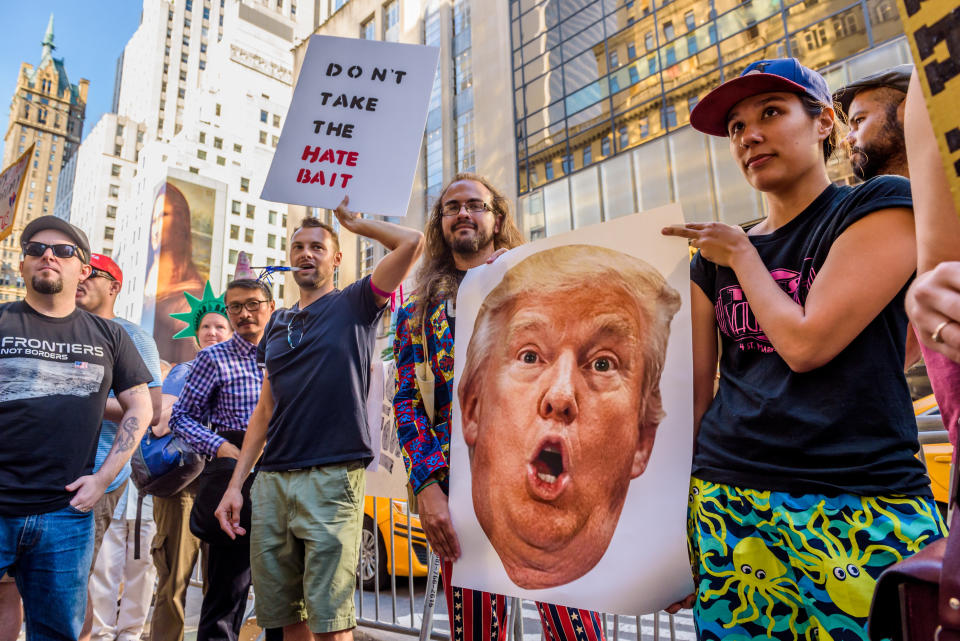Consumer sentiment plunges to its lowest level since Trump's election
Consumer sentiment is crumbling.
The preliminary reading for the University of Michigan’s consumer sentiment index in January declined to the lowest level since President Donald Trump was elected.
The headline index registered at 90.7 in January, falling sharply below consensus estimates of 96.8, according to Bloomberg. This compares to December’s reading of 98.3. It’s also the lowest reading since October 2016, when the index registered at 87.2. And it’s just the latest economic metric to drop to pre-election levels.
The index of consumer expectations, which is a component of the headline index, dropped to 78.3 from 87.0 in December.
“The decline primarily focused on prospects for the domestic economy, with the year-ahead outlook for the national economy judged the worst since mid-2014,” Richard Curtin, Surveys of Consumers chief economist, said in a statement.
A multitude of concerns has been hitting Main Street.
“The loss was due to a host of issues including the partial government shutdown, the impact of tariffs, instabilities in financial markets, the global slowdown, and the lack of clarity about monetary policies,” he added. “Aside from the direct economic impact from these various issues on the economy, the indirect effect meant that half of all consumers believed that these events would have a negative impact on Trump's ability to focus on economic growth.”
JPMorgan economist Daniel Silver called the January preliminary reading “a big disappointment relative to expectations.” He highlighted the government shutdown and uncertainty about the stock market following a volatile fourth quarter for equity trading as factors weighing on sentiment.
“This drop in sentiment is a sign that the government shutdown is negatively impacting consumer attitudes, although the press release noted that just one in 10 consumers mentioned the government shutdown in their responses,” Silver wrote in a note. “Other factors also are likely impacting consumer sentiment, and the Michigan survey showed a surge in responses reporting unfavorable news about the stock market.”

The University of Michigan’s readings for consumers’ views on current economic conditions and expectations for the future also declined more-than-expected, decreasing to 110.0 in January from 116.1 in December.
Curtin noted that the “strength in personal finances” will “continue to support consumption expenditures at favorable levels in 2019.” However, he added that consumers reported feeling a need to safeguard precautionary savings, which could impact discretionary spending.
The results of the University of Michigan’s survey extend a trend of declining confidence indicated in other data. The Conference Board’s latest reading for consumer confidence for the month of December declined to 128.1 from 136.4 in November, marking the second consecutive month of drops for the headline index. Indices measuring consumers’ assessment of current and short-term outlooks for business and labor market conditions also slipped, according to the Conference Board.
—
Emily McCormick is a reporter for Yahoo Finance. Follow her on Twitter: @emily_mcck
Follow Yahoo Finance on Twitter, Facebook, Instagram, Flipboard, LinkedIn, and reddit.
Read more from Emily:
Why the Huawei arrest is a huge problem for U.S.-China trade relations
Netflix user growth beats expectations, shares spike
Now is a ‘once-in-a-lifetime chance’ to invest in US pot companies, investor says